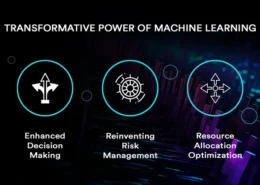Centralised entrance examinations play a crucial role in the Indian education system, determining admissions to various professional courses and higher education institutions. National Testing Agency (NTA) constituted in 2017, conducts entrance examinations for professional courses such as the CommoRead more
Centralised entrance examinations play a crucial role in the Indian education system, determining admissions to various professional courses and higher education institutions. National Testing Agency (NTA) constituted in 2017, conducts entrance examinations for professional courses such as the Common University Entrance Test (CUET) and the National Eligibility cum Entrance Test (NEET-UG). However, recent paper leaks have significantly eroded the integrity of the NTA, raising concerns about its ability to conduct fair and reliable examinations.
Impact of Centralised Entrance Examinations on the Indian School System:
Standardisation of Admission Criteria: Centralised exams provide a uniform platform for assessing students from different educational backgrounds.
For example: The CUET allows for a standardised assessment for admission to central universities, ensuring equal opportunities for students nationwide.
Increased Stress and Pressure on Students: The high-stakes nature of these exams often lead to significant stress and anxiety among students.
For example: The intense competition for limited seats in prestigious institutions like AIIMS and IITs can cause mental health issues among aspirants.
See less

Here are the critical challenges for sustainable agriculture in India summarized together: 1. Water Scarcity and Irrigation Management: Efficient water use and sustainable irrigation practices are crucial due to variability in rainfall and increasing water scarcity. 2. Soil Health and Degradation: MRead more
Here are the critical challenges for sustainable agriculture in India summarized together:
1. Water Scarcity and Irrigation Management: Efficient water use and sustainable irrigation practices are crucial due to variability in rainfall and increasing water scarcity.
2. Soil Health and Degradation: Maintaining soil fertility and health through practices like organic farming and soil conservation to combat erosion and nutrient depletion.
3. Climate Change Resilience: Developing resilience against climate change impacts such as extreme weather events, temperature fluctuations, and shifting rainfall patterns.
4. Pesticide and Chemical Use: Reducing reliance on pesticides and chemical fertilizers to mitigate negative impacts on soil, water quality, and human health.
5. Smallholder Farmer Viability: Enhancing livelihoods for smallholder farmers by improving access to markets, credit, technology, and sustainable farming practices.
6. Biodiversity Conservation: Protecting biodiversity in agricultural landscapes through agroforestry, biodiversity-friendly practices, and habitat preservation.
These challenges require comprehensive strategies and concerted efforts from government, research institutions, NGOs, and farmers to achieve sustainable agriculture in India.
See less